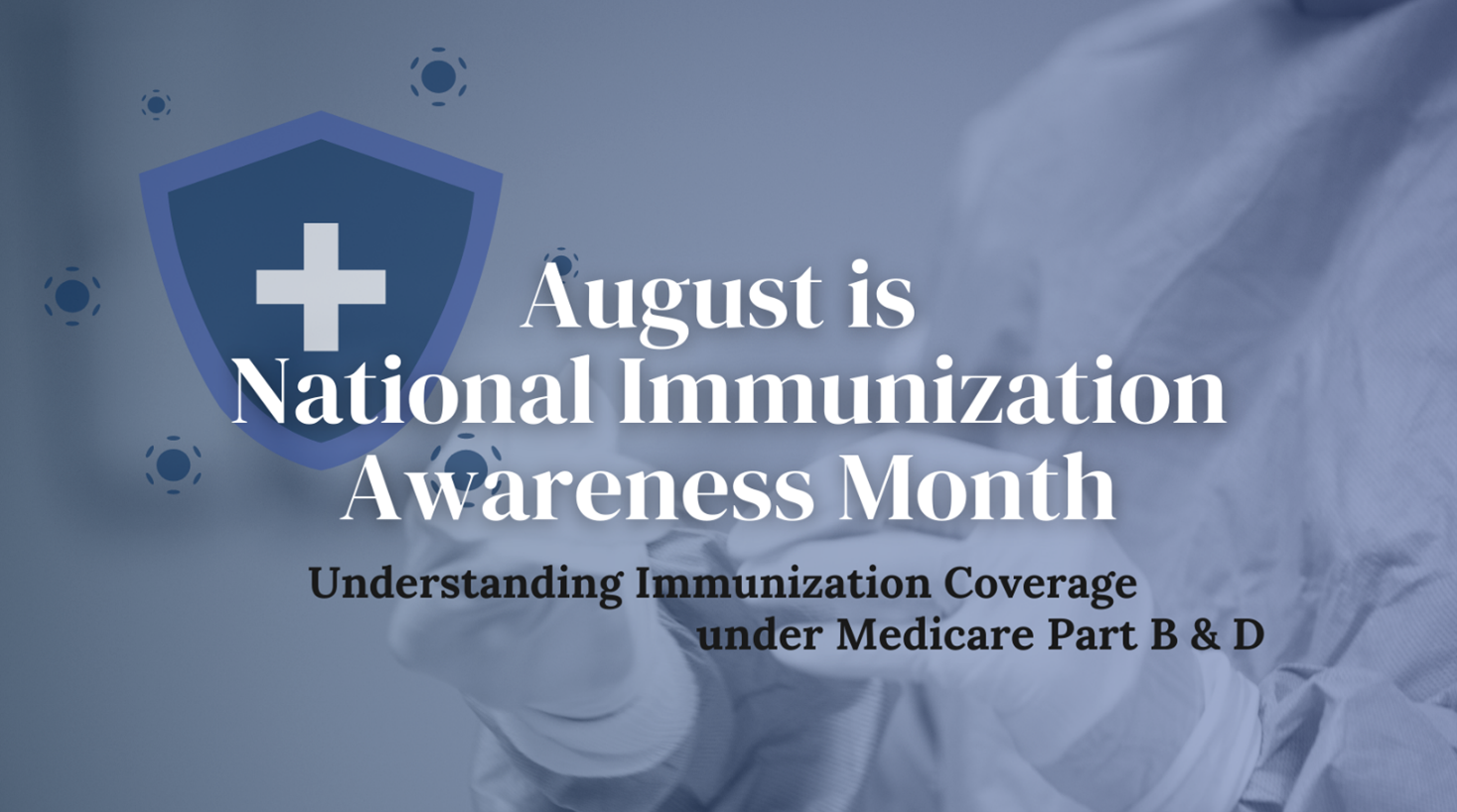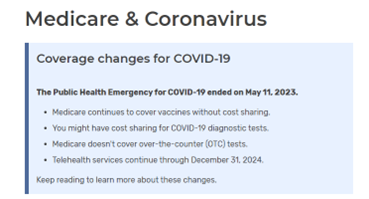
August marks Immunization Awareness Month, a time when we focus on the health of seniors by educating on immunizations. Seniors staying up-to-date with vaccinations can play an important role in preventive care. Fortunately, Medicare Part B and D plans offer comprehensive coverage for a range of vaccines, ensuring that older adults can access the protection they need to lead healthier, active lives.
The recently passed Inflation Reduction Act Lowers Health Care Costs for Millions of Americans. This legislation brings substantial benefits to millions of Americans throughout the country, including all 50 states, the United States territories, and the District of Columbia. Some of the key advantages are reduced Prescription Drug prices in Medicare, yearly cap on out-of-pocket Prescription Drug Costs in Medicare, and continued lower health insurance premiums.
Current Covered Immunizations under Medicare Part B:
- Influenza (Flu) Vaccine: Medicare Part B covers the annual flu shot, protecting seniors from seasonal flu and its potential complications.
- Pneumococcal Vaccines: Part B plans cover both pneumococcal vaccines – the pneumococcal conjugate vaccine (PCV13) and the pneumococcal polysaccharide vaccine (PPSV23). These vaccines protect against pneumonia, meningitis, and bloodstream infections caused by Streptococcus pneumoniae.
- Hepatitis B Vaccine: For seniors at risk of hepatitis B, Medicare Part B offers coverage for the hepatitis B vaccine, preventing liver infections caused by the virus.
- Covid-19: Approximately $40 for single-dose vaccines
For vaccines requiring multiple doses, approximately $40 for each dose in the series, including any additional doses and booster doses.
Current Covered Immunizations under Medicare Part D:
People with Medicare Part D drug coverage now pay nothing out-of-pocket for even more vaccines. Your Part D plan won’t charge you a copayment or apply a deductible for vaccines that the Advisory Committee on Immunization Practices recommends. * Per CMS Guidelines; Even if a drug plan’s formulary does not list all Part D vaccines, it must provide access when a physician prescribes a Part D vaccine to prevent a patient’s illness. *
Treatment vs. Prevention
CMS Medicare Part D Vaccines MLN Fact Sheet – June 2023
For example, if a patient gets a tetanus vaccination because of an accidental puncture wound, it’s a Part B-covered vaccine. However, if you patient gets a tetanus booster shot, unrelated to injury or illness, it’s a Part D-covered vaccine.
Drug plans cover vaccine administration costs, such as Dispensing fee (if applicable), Sales tax (if applicable), Vaccine administration fee, Vaccine ingredient cost.
Some of the common covered Vaccines include:
- : The shingles vaccine helps prevent the painful and debilitating rash caused by the varicella-zoster virus, which remains dormant in the body after a person has had chickenpox.
- These vaccines protect against tetanus, diphtheria, and pertussis (whooping cough).
Some things to remember!
Review Your Specific Plan: While Medicare Part B and D offers coverage for various immunizations, it’s crucial for seniors to review their specific plans. Different plans may have varying coverage levels and copayment requirements. Discussing your plan details with your health insurance broker is a great way to get up to date on the newly covered immunizations.
In-Network Pharmacies: To ensure coverage for vaccines, seniors should visit in-network pharmacies that are contracted with their Part D plan. Out-of-network pharmacies may result in additional costs.
Annual Plan Changes: Medicare Part D plans can change annually, including their covered vaccines and associated costs. Seniors should review their plan each year during the Medicare Annual Enrollment Period to ensure it aligns with their healthcare needs.
August Immunization Awareness Month serves as a gentle reminder for seniors to prioritize preventive care and immunizations. Medicare Part D plays a critical role in supporting the health of older adults by offering comprehensive coverage for essential vaccines. As a Medicare Beneficiary, take advantage of these covered immunizations to help stay protected from serious diseases, and head towards a healthier, and more active lifestyle in your golden years.
If you’d like to learn more about covered immunizations, please visit CMS.gov, or you may also contact us to review your Medicare plan coverage benefits.
The post National Immunization Awareness Month appeared first on Trusted Medicare Answers.
